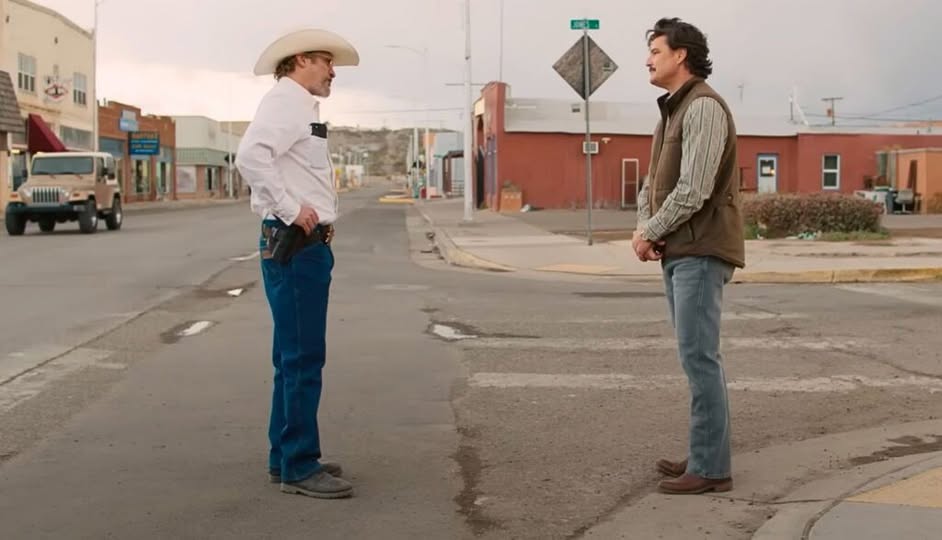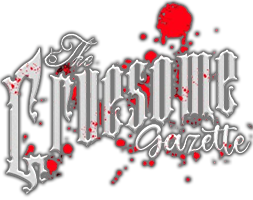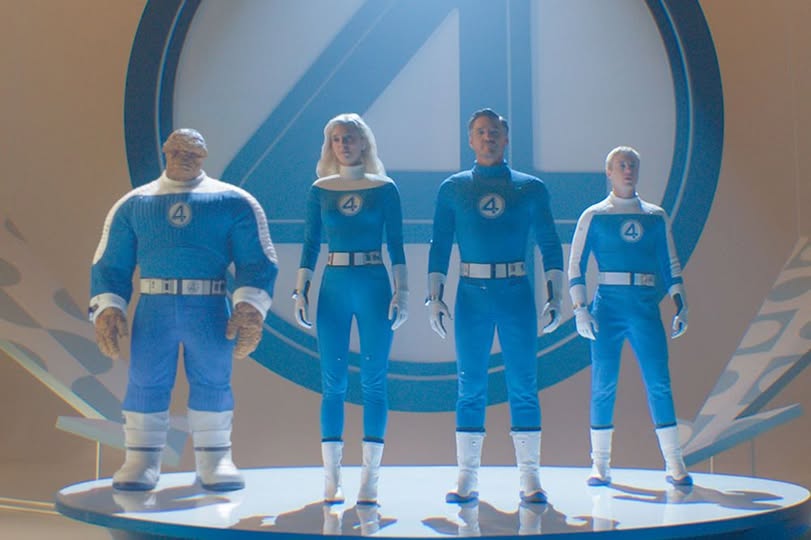
Ari Aster has proven to be quite a divisive and unique filmmaker during his career so far. From his horrifying short film ‘The Strange Thing About the Johnsons’, to his festival smash-hit ‘Hereditary’, his folk fairy-tale break-up film ‘Midsommar’ and even his paranoid fever dream of ‘Beau is Afraid’ – all of them have their merits and their fanbases. He’s become a director whose name demands attention, and his films are unpredictable and interesting. Last week his newest feature, a contemporary Western-drama titled ‘Eddington’, was released in theaters. And even though I hadn’t heard much about it up until now, you can bet I bought a ticket opening night to see it.
‘Eddington’ tells the story of a fictional small town in New Mexico during May of 2020. With COVID being freshly released upon Americans, politics completely at each other’s throats, and citizens waging war with their own neighbors, we watch as town sheriff Joe Cross (Joaquin Phoenix) goes against Mayor Ted Garcia (Pedro Pascal) in a battle for the year’s election. Sheriff Cross is fed up with how people are treating each other, how backwards all the superior’s decisions seem to be, and how money is leading the politics rather than righteousness. But Ted Garcia has been a success for years and is well aware that the Sheriff is ill-equipped for the campaign battle he’s signed up for. As personal grievances are addressed, each other’s personal life and histories are made public, and the tension simmers to an absolute boiling point, we watch the town tear itself apart before coming to an explosive conclusion. And there’s also a strange drifter who just drunkenly stumbles across town, getting into trouble and setting our characters up for some awkward situations along the way.
Ari Aster has played a dirty little trick upon the audience. The film is poised to be a satirical, comedic western – but it’s filled with so many controversial points and angles that you almost feel ashamed and judged for laughing at near anything in the film. Let’s mentally go back to 2020 for a moment (I know none of us really want to, but Aster’s making us). You remember when things like QAnon got really popular and everyone you knew was fighting each other? And how the “great mask debate” was literally ending relationships before the immunization shots were even a thing? Or how about when you couldn’t cough or sneeze in public without people making a scene? Or how since most everyone was forced to stay in their homes, internet and social media life became arguably more real than real-life. And then we also saw big things in the Southern states with the police brutality cases, public riots, Black Lives Matter movements, ACAB, and so on. On top of the fact that people you and I personally knew were really dying.
Physical reality entered into the digital world, and we now exist in a state of utter confusion that I’m not sure we will ever recover from. Through this film, Ari Aster literally makes us re-live through every single one of these things. A large chunk of the story itself is told through Twitter, making it feel even more real to re-witness. A lot of lesser character motives are entirely defined by their online personalities and clout chasing, discussions about topics they know absolutely squat about, or hiding their real selves from the rest of society. There is a constant, looming threat about being recorded and publicized for your actions at any specific day and time. And as we know, if you strip away the context from almost anything, you can frame it to look objectively different – and much worse – than it usually really is. All this being said, I am glad that the director doesn’t really seem to be taking cheaper shots at any one specific target audience during this story and he does seem to balance his anger evenly at everyone.
Controversy aside, this film is interesting to say the least. In typical fashion the film itself doesn’t really stay in any one lane. Each character feels real and is played by many phenomenal actors (including Emma Stone, Austin Butler, Luke Grimes, & Deirdre O’Connell – just to name a few). The genre shifts happen abruptly and continue to do so. The production design and cinematography are gorgeous – the actual craft that went into making this film is rather brilliant. The music is solid but not nearly as memorable as, say, ‘Hereditary’ or ‘Midsommar’s were, and the manic energy we all love from Aster is definitely front and center. The story takes its time to set up the characters, their hopes and desires, their limitations, and the entire community they live within. Just like in his last two films, every single time there is a large crowd you can watch any one specific person in the background and see that they have a specific purpose and know exactly how they’re doing it. But since there is so much story and anthropology being covered during its 2 and a half hour long runtime, the pacing is where the film mostly suffers.
This is the first Aster film where I definitely felt the time ticking. The last hour made me tired, and I was ready to go home. It feels as though the central point of the story just seems to fizzle away, and the emphasis is placed harder on other things, which almost gives this like whiplash sort-of feeling. While the actors were all very good, I ultimately didn’t give a shit about anyone’s character in this film – except for perhaps Emma Stone’s character as Louise Cross, or the sheriff’s two deputies who were both caught up in a situation they never expected to escalate. The ending feels… not really random, but not like a real payoff. It almost feels like its the grand ending to a side story, whereas our main story we were following all along just ended a while ago and you just missed it. It’s sloppy and staggering, filled with bursts of almost filler-like content.
But the absolute duality between how the characters react to each other is picturesque when in the context of a western. Two men standing 6-feet-apart is literally a duel. All of the guns are replaced with cellphones (for the most part). And the devolution of humans as they scramble to find outlets for their rage and confusion, all while living behind a screen is quite literally a Western dynamic flipped on its head. Even the Sheriff and his wife have their most heated arguments when separated by a screen door. Aster knows how to frame a shot and put layers of interesting dynamics that all intertwine at once.
I will say this is probably my least favorite Ari Aster film so far. However, that does not mean it’s a bad film by any means. It serves as a farcical look back at one of the strangest and bleakest times in recent history, not really making us think differently at all about the context around any of it, but more so to just make us all collectively stare at it and agree “yeah, those were some very weird, fucked up years that we lived through. Like, we really lived this.” At its strongest points, it is interesting, funny, and really well made. At it’s weakest points, it is meandering and lacking any real, concise depth.
I’d recommend everyone seeing this film atleast once, because it’s really quite a choice to have made this. And the longer I sit with it and ponder it, the more I think I may be already coming back around on it… hm.
3.5/5
‘Til Next Time,
Mike Cleopatra




